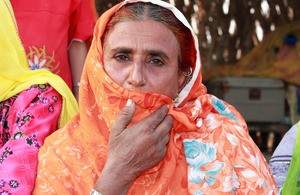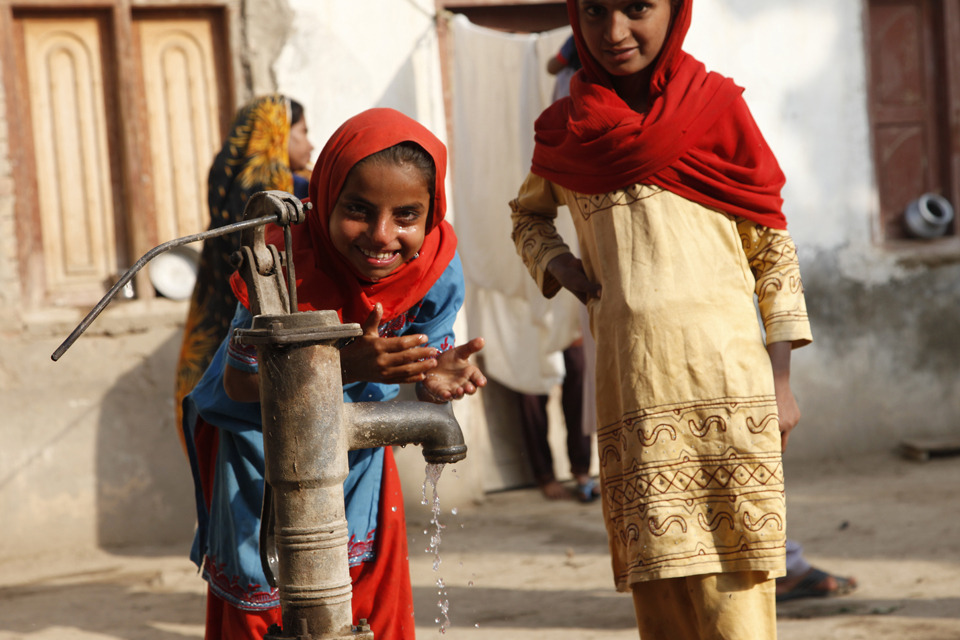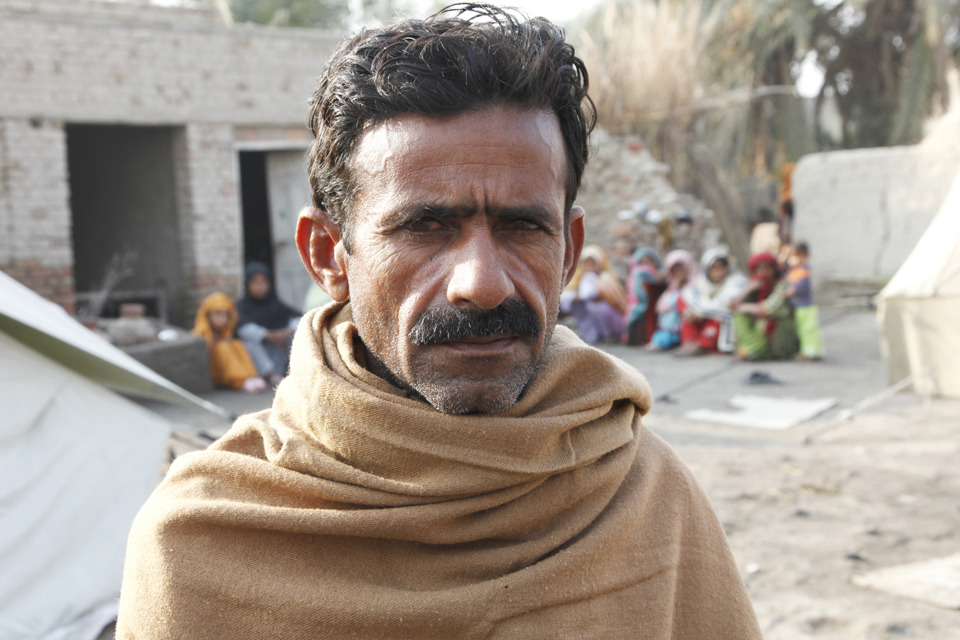Pakistan six months on: water brings relief to flood survivors
How UK aid is providing safe drinking water to communities returning home in Sindh province

Naik Bakht. Picture: Vicki Francis/DFID
When the flood waters came in August 2010, they came without warning in the middle of the night. Fifty-year-old Nekbakhat (pictured) had to flee her home in the dark with her husband and 5 children.
She will never forget the terror of that night as she and her family tried to get to safety:
“We ran away to save our lives. We were crying. The water was all around us. There were 50 houses in the village but they were all washed away by the flood. We lost everything.”
As well as homes and crops, basic services like access to safe drinking water were destroyed.
With UKaid funding from the Department for International Development (DFID), NGO Mercy Corps has installed water pumps in hundreds of villages like Nekbakhat’s, to help meet people’s basic needs as they return home.
Water that saves lives
“We had no water storage and we were drinking flood water. But now we are drinking clean water,” she says.
“It is good for our health and we have been saved from diseases like cholera and dysentery.”
Getting clean drinking water to remote villages is particularly important for the safety of women like Nekbakhat who traditionally collect water for their households.

Ten-year-old Shakila drinks clean water from a hand pump in her village. Picture: Russell Watkins/DFID
Previously, the women in Nekbakhat’s village had to walk several kilometres everyday to find water. But now they can fetch water from the trucks and storage tanks in their village.
Staying healthy
In a neighbouring community, village elder Punhal explains the problems they faced when they returned home.
The elders were worried about the older community members and young children who were getting ill after drinking dirty water.
But thanks to UKaid funding from DFID, Punhal’s family and neighbours now collect clean water from taps in the centre of their village.
“After the floods we had to drink the flood water, which was contaminated,” he says.
“There were outbreaks of disease, dysentery and food poisoning. After that, clean water was provided. This clean water is helping us stay healthy. The diseases are under control now.”

Village elder Punhal, Sindh province. Picture: Russell Watkins/DFID
DFID funding is also helping Mercy Corps build new latrines, promote hygiene awareness and distribute hygiene kits. The programme will deliver clean water and sanitation facilities to over 160,000 people in Sindh province as they start to return to their land.
Help and hope
Some parts of Sindh province in southern Pakistan remain underwater and rebuilding lives and livelihoods will take time. But Punhal remains hopeful:
“With your help, our future will be prosperous. We are working our fields and cultivating them. This will increase our earnings and we will be able to provide health and education for our children.”
Facts and stats
Mercy Corps’ DFID funded programme will ensure that 160,000 people get access to clean water and 8,000 families will be given help to build latrines.
The programme will help people in 200 villages in Qambar Shadadkot, Jacobabad, Shikarpur and Kashmore districts of Sindh province.
While the water systems are being rebuilt, beneficiaries receive access to potable water through filtration and water trucking or distribution of purification kits.